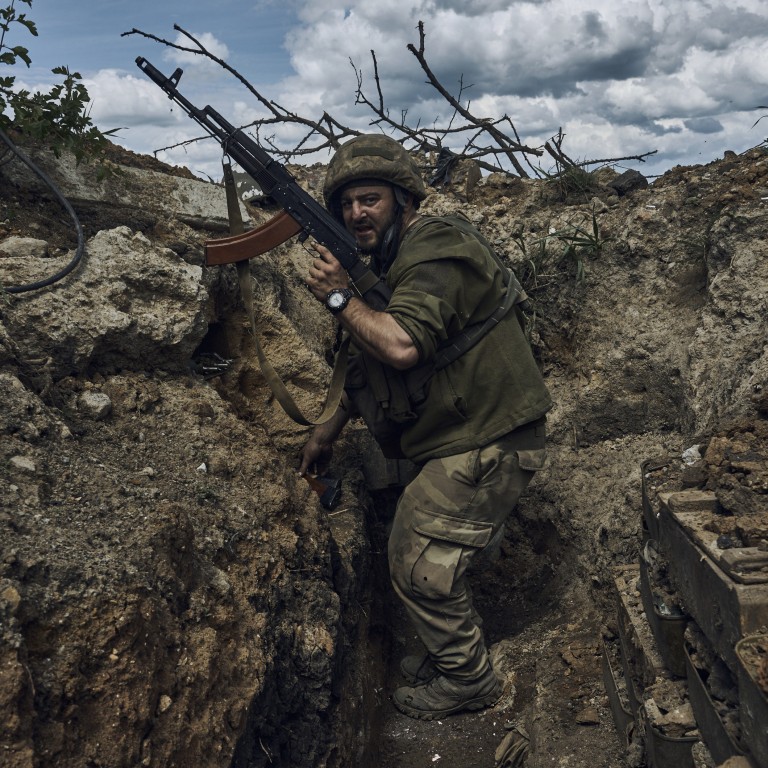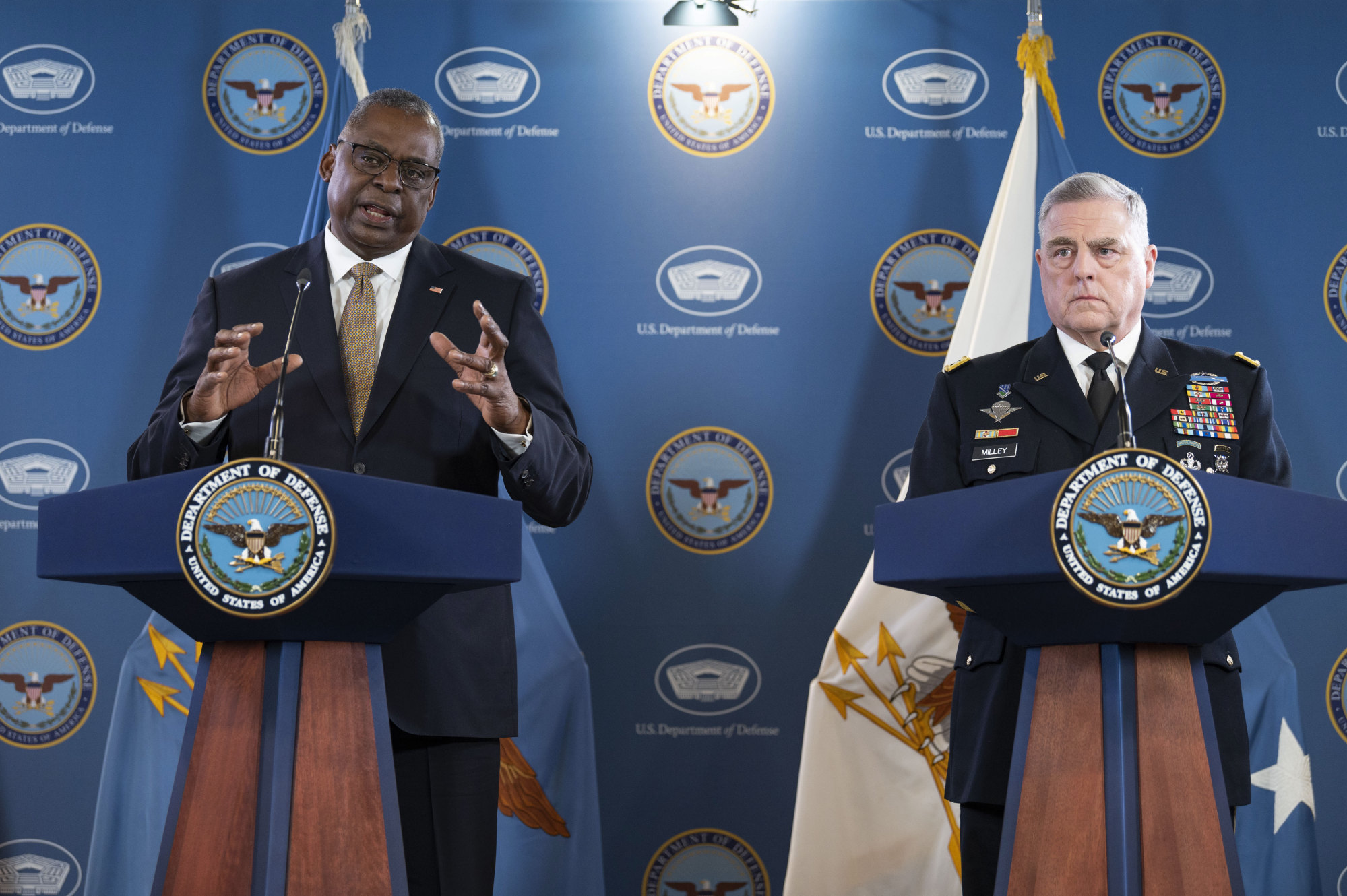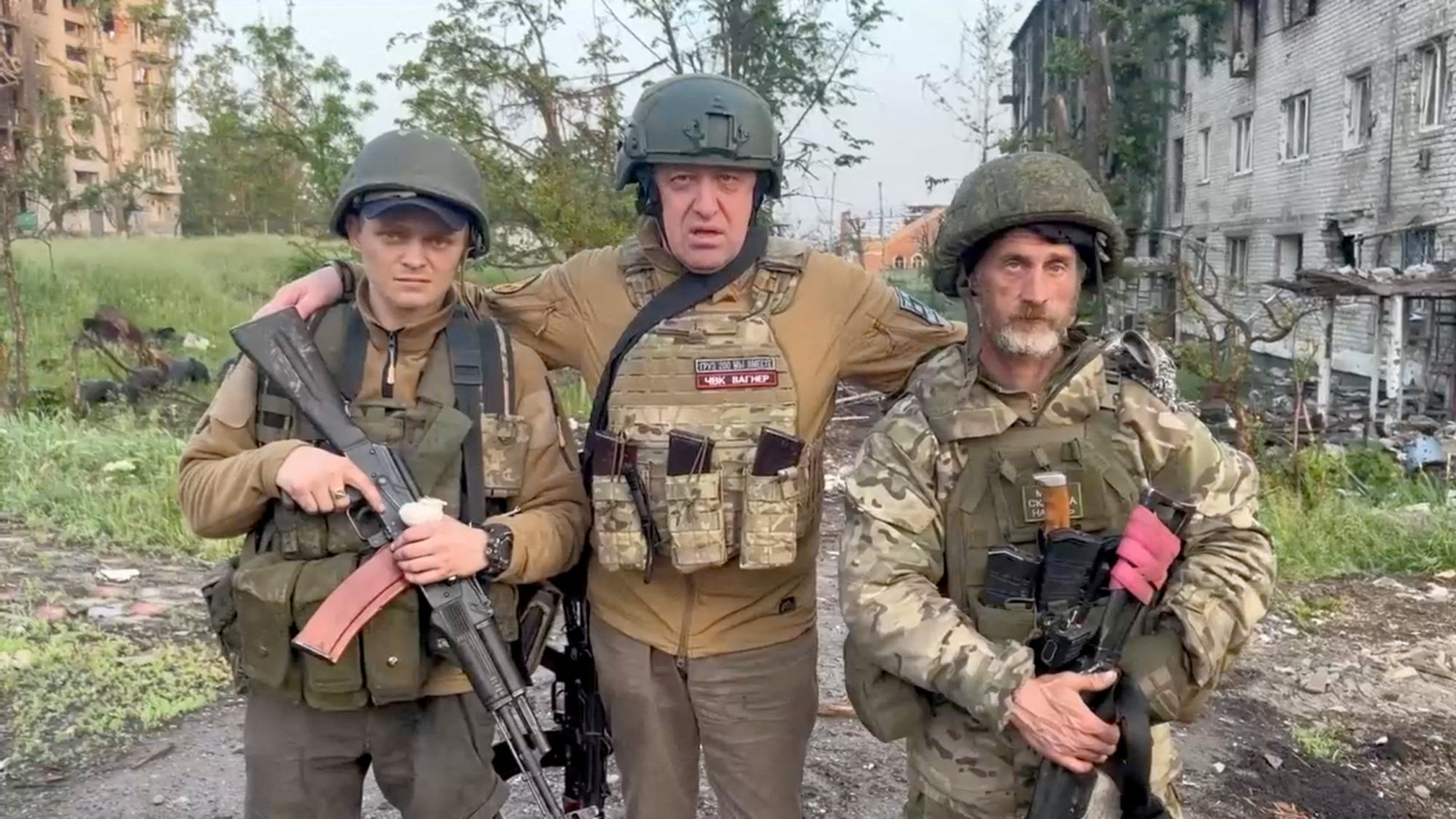
Ukraine war: Medvedev sees conflict lasting decades, as top US general doubts Russian military victory
- Statements underline forecasts that the Ukraine war is set to drag on, with neither side positioned to win a clear-cut victory
- Pentagon says allies will unite to train Ukrainians on F-16 warplanes, but warns jets aren’t ‘magic weapons’
A top ally of Russian President Vladimir Putin said the Ukraine war could last for decades, with long periods of fighting interspersed by truces.
Russia’s RIA news agency said that former president Dmitry Medvedev, deputy chairman of Putin’s powerful security council, had spoken during a visit to Vietnam.
Medvedev often makes hard line comments and last month described Ukrainian authorities as an infection.
“This conflict will last a very long time, most likely decades,” RIA cited Medvedev as saying on Thursday.
“As long as there is such a power in place, there will be, say, three years of truce, two years of conflict, and everything will be repeated,” he continued, reiterating Moscow’s claim that Ukraine is a Nazi state.
Medvedev again raised the prospect of a nuclear conflict, saying that Russia will have to launch a pre-emptive strike if the West gives Ukraine nuclear weapons. In January, Medvedev said if Russia were defeated it could trigger a nuclear war.
China peace envoy told again Beijing must push Moscow to end Ukraine invasion
“There are irreversible laws of war. If it comes to nuclear weapons, there will have to be a pre-emptive strike,” Russian news agencies quoted Medvedev as saying on Friday.
In March, Putin said he would station “tactical” nuclear weapons – in effect short-range atomic missiles – in Belarus, drawing condemnation from the West.
Meanwhile in Washington, top US officer General Mark Milley said Russia will not achieve a military victory in Ukraine, while also cautioning that Kyiv was unlikely to force out all of Moscow’s troops any time soon.
“This war, militarily, is not going to be won by Russia. It’s just not,” Milley told journalists after the conclusion of a virtual meeting of dozens of countries that support Ukraine on Thursday.
Russia’s original strategic objectives, including overthrowing the government in Kyiv, “are not achievable militarily, they’re not going to be done,” Milley, chairman of the Joint Chiefs of Staff, said.

The comments by Milley and Medvedev underlined forecasts that the war in Ukraine is set to drag on, with neither side positioned to win a clear-cut victory and no negotiations currently taking place.
At the same time, there are hundreds of thousands of Russian soldiers in Ukraine, making Kyiv’s objective of recapturing all of its territory unlikely “in the near term,” Milley said.
“That means fighting is going to continue, it’s going to be bloody, it’s going to be hard. And at some point, both sides will either negotiate a settlement or they’ll come to a military conclusion.”
The United States has spearheaded the push for international support for Ukraine, quickly forging a coalition to back Kyiv after Russia invaded in February 2022 and coordinating aid from dozens of countries.
Ukraine war: Belgorod incursion may stretch Russia’s defences
In total, Ukraine’s supporters have provided nearly US$65 billion in security assistance to the country, US Defence Secretary Lloyd Austin said.
Austin said that European allies are developing a coordinated programme to train Ukrainian forces on the F-16 fighter jet, but Pentagon leaders warned that it will be a costly and complex task and won’t be a magic solution to the war.
Austin said the allies recognise that in addition to training, Ukraine will also need to be able to sustain and maintain the aircraft and have enough munitions.
And he said air defence systems are still the weapons that Ukraine needs most in the broader effort to control the airspace.

“There are no magic weapons,” said Milley, who spoke alongside Austin at the Pentagon. He said providing 10 F-16s could cost US$2 billion, including maintenance.
“The Russians have a thousand fourth and fifth-generation fighters, so if you’re going to contest Russia in the air, you’re going to need a substantial amount of fourth and fifth-generation fighters.”
As a result, he said, allies did the right thing by first providing Ukraine with a significant amount of integrated air defence to cover the battlespace.
He said F-16s have a future role as part of Ukraine’s air capabilities, but it’s “going to take a considerable length of time to build up an air force that’s the size and scope and scale that would be necessary”.
Austin said the Dutch and Danish defence ministers are working with the US on the effort, and that Norway, Belgium, Portugal and Poland have already offered to contribute to the training. In addition, he said the allies will set up a fund so that other nations can contribute to the overall effort.
Russia’s claimed Bakhmut win is anything but, Western experts say
On the ground, the head of Russia’s Wagner mercenary group Yevgeny Prigozhin said on Thursday that his troops had started handing over their positions in the flashpoint eastern Ukraine city of Bakhmut to the Russian military.
Wagner said it began pulling out its fighters after claiming to have fully captured the destroyed city at the weekend.
Ukraine, which denies that Bakhmut has fallen to Russia, insisted it still controlled a “micro district” of the city and said it was still advancing on its flanks.
The battle for Bakhmut has raged for nearly a year, levelling the city and decimating waves of Wagner recruits who have led Russia’s assault on the industrial hub.
Reuters, Agence France-Presse and Associated Press
